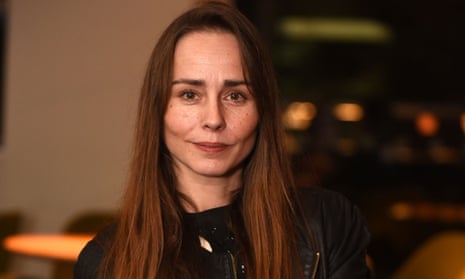Although 1990s British pop culture is now generally discussed through the prism of Britpop, there was another equally pervasive storyline: the rise of young British female actors. Everyone from Kate Winslet to Sadie Frost was eagerly pitched as the next big thing, and the general assumption was that Hollywood was the focus and eternal fame the reward. But of the many young, posh and pretty female faces that smiled from the magazine covers then, few seemed as much of a sure thing as Tara Fitzgerald.
One 1996 interview described her as falling “somewhere in between established British actresses like Helena Bonham Carter and Emma Thompson and young upstarts like Winslet and Minnie Driver”, which was right, but underestimated how ubiquitous Fitzgerald was. She was successful not just in hit British films (Hear My Song, Sirens, Brassed Off), but also on TV (The Tenant of Wildfell Hall, Frenchman’s Creek) and in the theatre, including her portrayal of Ophelia in 1995 opposite Ralph Fiennes’s Hamlet.
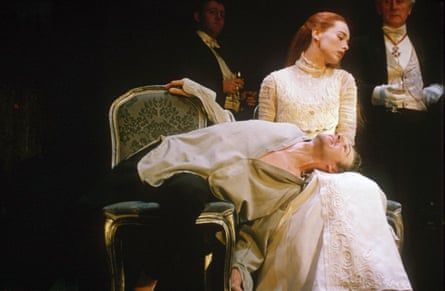
It was never clear to me what happened next. Fitzgerald didn’t totally disappear: the big movies faded away, but she has had regular roles on TV shows, such as Waking the Dead and Game of Thrones, and has played most of Shakespeare’s great female roles. But there is no doubt she is less high-profile today than those she was grouped with in the 90s. On a Friday afternoon, I met her for tea to find out why.
Fitzgerald, 51, arrives 10 minutes early, a tiny figure in a giant coat. Like Bonham Carter, she has an air of bohemian poshness that makes her seem timeless; it is as easy to imagine meeting her in the 1980s as in the 1880s. “Tea, we must have tea, yes?” she says, looking as serious as if she were pondering whether to marry Mr Bingley or Mr Darcy.
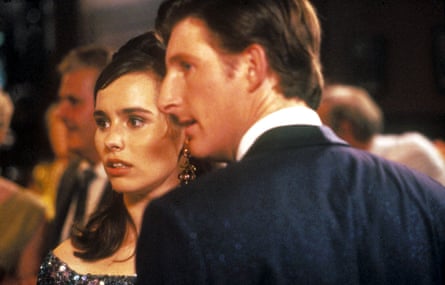
The reason we are meeting today suggests that ageism is at least part of the reason for Fitzgerald’s absence from the big screen. She is in a short film, Rain Stops Play, directed and written by Mika Simmons, in which she plays the suspicious wife of a man (Joe McGann) who has developed a crush on a much younger woman (Imogen Waterhouse). Fitzgerald has depressingly little to work with, and, to me, the film felt as reductive as a 1970s sitcom. What did Fitzgerald make of the role?
She hesitates, then laughs. “Well, I enjoyed her, and it was good to work with Mika.” (Fitzgerald and Simmons previously worked together on Frenchman’s Creek.)
Fitzgerald complained in the 90s that she was always cast as “the pretty girlfriend”, and it is easy to imagine her being cast at that time as the lusted-after young woman. “Yes, but I couldn’t have done it as well as Immy – she has such a naturalness. This will make me sound old, but there’s an ease that young people have these days that I definitely didn’t have. Maybe it’s because they film themselves all the time so the boundaries between reality and unreality are more blurred.”
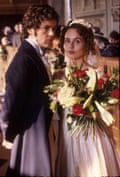
Was she unconfident when she was making those 90s movies, then?
“Definitely. Definitely!” she says. “I didn’t think I was very talented, or certainly not more talented than the others. I thought I was lacking because I wasn’t particularly ambitious. I didn’t have that fight. Had I been brought up in a more competitive environment, or school, maybe it would have been different. I was very insecure.”
It must have been hard to cope with all the sudden attention if she was so insecure?
“I coped well enough. But I’d say my shyness or interior personality meant I didn’t grab hold of things that someone with a more forceful personality might have. I’m not very good at playing the game,” she says.
Fitzgerald is the daughter of an upper-class Irish mother and a working-class father. “There was a nice bohemian mix,” she says. Her parents separated when she was young, and her mother remarried the actor Norman Rodway, “so acting always seemed like a possible career”. But her father, Michael Callaby, remained a formative influence: “He had wanderlust and would disappear for long periods, which obviously just increased the romance of the father figure for me,” she says.
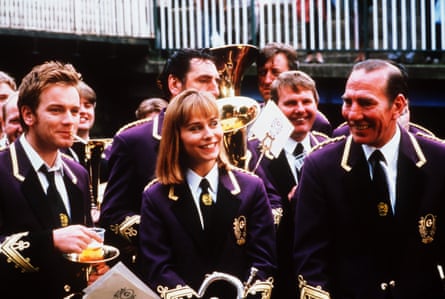
When Fitzgerald was 11, Callaby died, but not until she was 19 did she learn that he had killed himself.
“I read somewhere that your mother provides you with an interior understanding of yourself and your father provides an understanding of the world outside. I wonder if I was missing that slightly, that language of the outside world, although he himself was very shy,” she says.
The same year she learned about her father’s suicide, she had an ectopic pregnancy and the ensuing operation meant she could never have children. “I’m quite accepting about not having children, but, yes, it was a big year,” she says with breezy understatement. “Fortunately, I started drama school then, and that really was the saving of me.”
Dropping out of A-levels had left Fitzgerald with stinging insecurities that she “wasn’t bright and didn’t really know anything”. When she got to the Drama Centre in north London, she studied the classics with the zeal of one who had something to prove.
When she left, she was cast almost instantly in 1991’s Hear My Song, which was picked up by Miramax, co-run by one Harvey Weinstein. Fitzgerald was considered one of his proteges. In a 2003 Observer profile of the now shamed producer, he was described as having “particularly protective, avuncular relationships” with Fitzgerald, Julia Ormond, Gwyneth Paltrow and Nicole Kidman. (Last year, Paltrow alleged Weinstein sexually harassed her). Was she close to Weinstein?
“I met him pretty much as soon as I graduated from drama school, and then I knew him for about 10 or so years,” she says, a little nervously. In fact, they were close enough for her to recommend that he make The English Patient, which he did. “I said to Harvey: ‘This is an incredible script.’ I don’t know if I got it made, but I know that he then read it so, um, yes,” she says.
I tell Fitzgerald that I had witnessed for myself Weinstein’s bullying, controlling side, but at the time put it down to him being a big Hollywood producer rather than a sign of something more ominous.
“Yes, I think I would have said at the time that he was just a feisty man. I didn’t think anything more of it then so [the allegations] have been like walking through a door to a new dimension,” she says.
Was he ever inappropriate with her? “Did I ever feel anything inappropriate? Um, no, not at the time.”
But in retrospect? “Um, I don’t know. I don’t really want to talk about it,” she says, shutting down.
What is certain is that Fitzgerald had planned to produce a film version of her favourite book, The Passion by Jeanette Winterson, with Weinstein’s involvement, “but for whatever reason, that never came to be”. She and Weinstein “drifted apart” in the early 00s. “I didn’t challenge it, I just accepted it, like: ‘Oh, well, I’ll just get on with things,’” she says.
Did her decision to stay in Britain instead of moving to Hollywood have anything to do with her experiences with Weinstein? “Oh God, no. I just feel stronger here, so better able to do my job, and my family’s here, and I’m really close to my mum,” she says.
These days, Fitzgerald, who was briefly married to the director John Sharian, lives with her partner, “who is not in the business, which is good”. As well as acting she enjoys what she describes as “solo activities … reading, painting, things that grow me”. She comes across as quiet, shy, intelligent and still slightly insecure, and perhaps the surprise isn’t that she didn’t become more famous but that she became as famous as she did. I have met few people who have seemed less interested in, or suited to, the high-profile spotlight of celebrity.
“I’m a private person, so what I want to do is do the work that interests me and then go home,” she says. And then she does exactly that.
